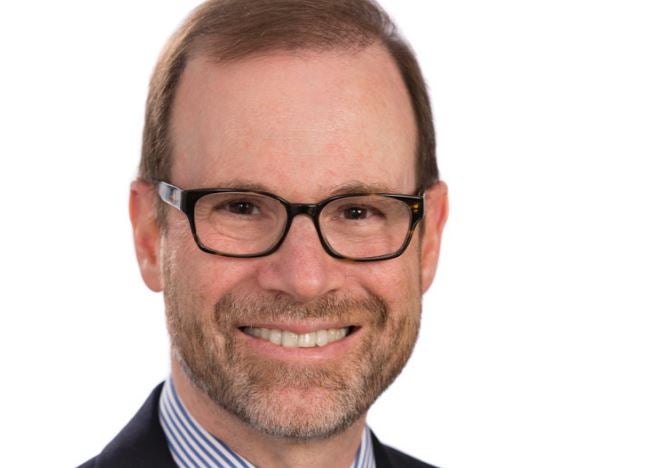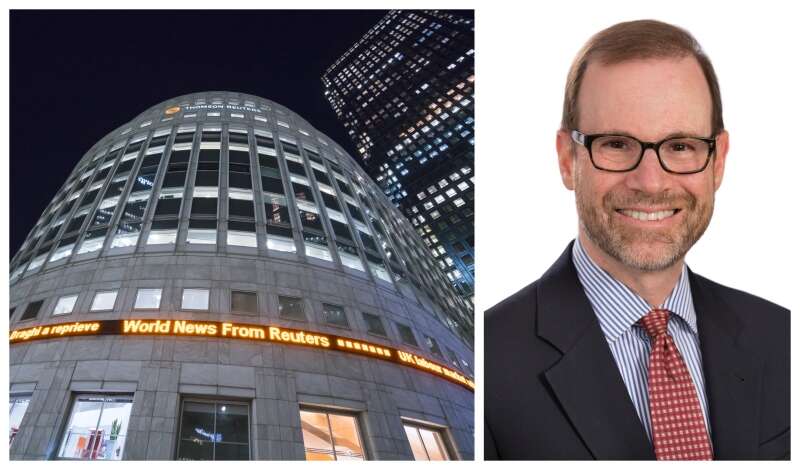
It’s not uncommon for a global news agency like Reuters to have to kit out its staff with gas masks and helmets ahead of a major political event.
The group, led by editor-in-chief Stephen J Adler, has 2,500 journalists based in 200 locations across the world, including many conflict zones.
What is unusual, though, is that the latest recipients of this protective gear are reporters covering an election in the United States of America.
“Our concern about the safety of journalists in the US is unprecedentedly high,” he tells Press Gazette ahead of next week’s presidential election.
“My own observation, both here and around the world, is that wearing that big ‘PRESS’ on your chest is no longer as much of a protection as it might once have been.
“Sometimes the press are targets, or sometimes just the fact that they’re press is simply ignored. So while we’re certainly hoping there’s no violence, there’s been enough chatter about it that we’re going to be super prepared.”
The US election comes months after dozens of US journalists were injured while covering protests across the country in the summer, hence Adler’s concerns.
Among the injured were two Reuters TV crew who were hit by rubber bullets while covering unrest in Minneapolis (video above).
“We have a very robust digital and physical security programme in place,” adds Reginald Chua, Reuters’ global managing editor, operations. “And we’re doubling down on that ahead of this election.”

Left: Reuters news building (credit: Shutterstock/4kclips). Right: Reuters editor-in-chief Stephen Adler. Collage by BeFunky
He explains that Reuters, as a precautionary measure, will be distributing flak vests, helmets and gas masks, as well as Covid-19 personal protective equipment including N95 masks, among its reporters.
“We’re making sure that we have physical security equipment distributed out to any place that might need it in case there is unrest.
“It is an odd thing to have to think about doing that in the US in case of election unrest. But, given what people have said, I think it’s just prudent for us to make sure we have all the gear and kit ready in case we need it.”
Co-ordinating its biggest election campaign… from Microsoft Teams
As a global agency that produces more than two million stories a year for thousands of news organisations across the world, Reuters is used to playing a big role in the coverage of major events such as US elections.
But the news group – which traces its roots to London in 1851 and is today part of the Thomson Reuters group – will play an even bigger role than usual in the 2020 vote.
This year, for the first time, Reuters is working with the National Election Pool – a consortium of US broadcast giants ABC, CNN, NBC and CBS – to distribute live election results and exit polls based on data from Edison Research.
Reuters will have dozens of reporters working across the nation around the election, including 15 camera crews in key battleground states, political reporters and financial markets correspondents.
In any other election year, many of these journalists would be clustered together in offices in Washington and New York.
This year?
“Everybody’s basically going to be on a Microsoft Teams group,” says Adler, who believes international interest in this year’s vote – coming in the midst of the Covid-19 crisis, and after four years of a Trump White House – “has clearly never been higher”.
“We will have people in the Washington Bureau, a core of people. But everybody else is essentially going to be on a Teams channel…
“I’m going to be sitting at home, looking at several screens, watching what’s coming in from the polling, what’s coming in from the field, what’s going on on that chat – [deciding] what calls and questions we have to make.”
Amid concerns that the high level of postal voting could lead to major results delays, Adler – who has been editor-in-chief since 2011 – is preparing his team for an election coverage “marathon” this year.
“One of the things that’s going to make this interesting from a staffing perspective is ordinarily, you have an election – the people covering it are working night and day, they’re exhausted… And then basically, when the election is over – while you still have some people covering transition – people take a vacation essentially before gearing up for the inauguration.
“It’s very likely that can’t happen [this year], so we’re actually planning different times of shifts and a way to extend the intensity if necessary for a couple of months afterwards. So that’s different.”
He adds: “We’re anticipating potential legal challenges in potentially numerous states. And we are very strong on legal news coverage… This is very much a legal story as well as a political story.”
‘You’re never going to stop this amount of disinformation’
In addition to working with the National Election Pool, Reuters has partnered with Facebook to provide live election night results to social media users.
Announcing the deal in September, Facebook chief executive Mark Zuckerberg said the partnership would enable the platform to provide its users with “authoritative information about election results”.
He added: “Importantly, if any candidate or campaign tries to declare victory before the results are in, we’ll add a label to their post educating that official results are not yet in and directing people to the official results.”
Disinformation, spread on Facebook and through other media, was one of the defining features of the 2016 election. How big of an issue is it this time around?
“There was a lot of disinformation in 2016,” says Adler. “I’ve got to say there’s multiples more in 2020 – the amount of so-called fake news or disinformation out there, some of it being promulgated by foreign sources and frankly a lot of it now domestic.”
Doing its bit to combat disinformation, Adler says Reuters works hard not to “proliferate any information that you haven’t vetted and you’re not careful about”. The group also has a dedicated fact-checking team. It is also working on projects to help educate children on how to be media literate.
Adler says: “You’re never going to stop this amount of disinformation – it’s taken on a life of its own – but you can educate people not to be as influenced by it.”
How to build trust as a news organisation
Despite not always being immune to ‘fake news’ attacks from Trump (see video below in which he accuses a reporter of being corrupt for asking questions about Ukraine) Reuters is regularly ranked as one of the world’s most trusted news providers.
So what is the secret of Reuters’ trustworthy reputation?
“We try to avoid the polarisation,” says Adler. “And it’s a pretty easy sell internally, because I think the staff culture is around being unbiased, and not taking a side. It’s very self-reinforcing…
“We’re certainly not part of the flaming war of left-wing network v right-wing network kind of thing. And we aspire not to be in that situation.”
“That said,” he adds, “the country is so polarised that there is a sense that: you’re either with us or against us.
“Our goal – sometimes people get confused about this – it’s not to blandly present facts without context. We’re providing facts with fact-based analysis and providing context. We’re providing the information necessary to make a decision, or to understand the situation more fully.
“We’re not trying to tell you what to think.”
Email pged@pressgazette.co.uk to point out mistakes, provide story tips or send in a letter for publication on our "Letters Page" blog
